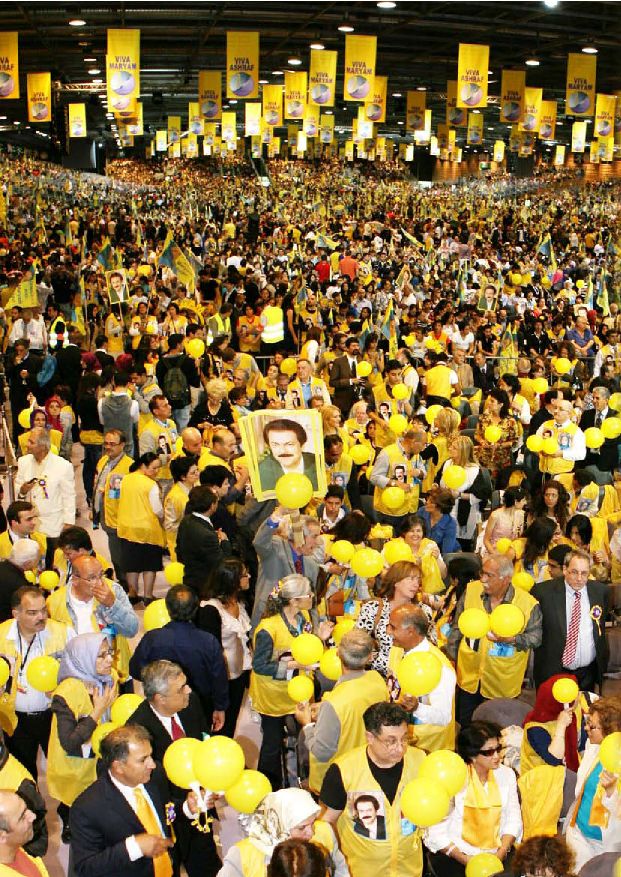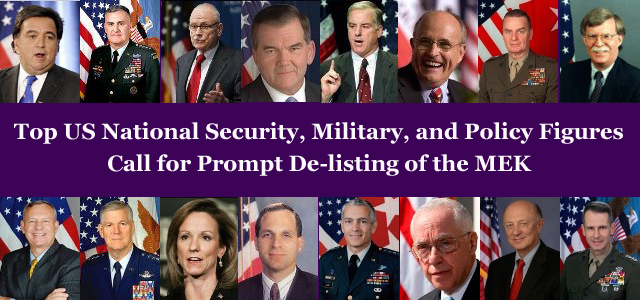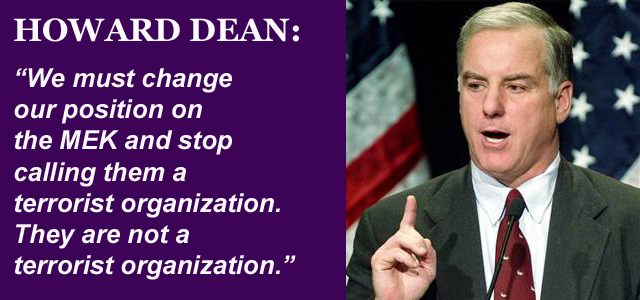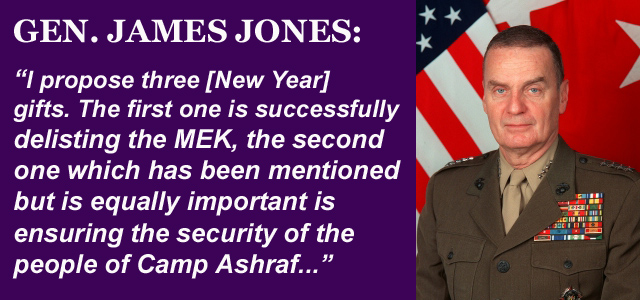PRNewswire
Terror Tagging of an Iranian Opposition Organization
WASHINGTON, Aug. 22, 2011 /PRNewswire-USNewswire/ — On Thursday, 18 August 2011, the Iran Policy Committee (IPC) held a press conference at the National Press Club to launch its new study—Terror Tagging of an Iranian Opposition Organization.
(Photo: http://photos.prnewswire.com/prnh/20110822/DC55349)
To determine whether there is credible evidence to sustain a valid terrorist designation, the IPC study analyzes State Department administrative records about the Mujahedeen-e-Khalq (MeK); the Department’s Country Reports on Terrorism; a declassified State Department summary of classified allegations; public electronic databases; and media at the time of alleged incidents. The goal is to infer credibility (reliability) of sources of allegations against the MeK and validity (reasonableness) of the MeK terrorist designation. The three databases are: U.S. National Counterterrorism Center Worldwide Incident Tracking System; U.S. Department of Homeland Security sponsored Global Terrorism Database, University of Maryland; U.S. supported RAND Database of Worldwide Terrorism Incidents.
Based on these sources, IPC President Professor Raymond Tanter stated the main finding of Terror Tagging as, “absence of evidence to support the conclusion that the Mujahedeen-e-Khalq engages in terrorist activities or terrorism, or has the capability and intent to do so.” Tanter added, “To be re-designated absent any terrorist activity or terrorism, the State Department has to demonstrate that the MeK has both the capability and intent to engage in terrorist activity or terrorism, and either threatens the national security of the United States or the security of U.S. nationals. So far, the State Department has failed these tests.”
Commenting on Terror Tagging, John Sano, former Central Intelligence Agency National Clandestine Service (formerly, the Directorate of Operations) first Deputy Director, said, “The Iranian Ministry of Intelligence and Security, (MOIS), has shaped the opinion of the MeK [Mujahedeen-e-Khalq] throughout the world.” Sano added that the MOIS planted, “false press reports about how the MeK was ‘responsible’ for… attempted airline bombings, hiding weapons of mass destruction, bombings in several cities, and training female suicide bombers.”
Sano added, “So, what the MOIS has been able to do is exploit vulnerabilities in our intelligence system.” Explaining why the Iranian MOIS plants stories in the press of potential threats faced by U.S. military commanders, Sano stated, “And then [the MOIS] goes to those individuals and says, ‘You know, that Camp Ashraf, they’re harboring suicide bombers. They’re training them, and that’s a threat.’ So now the military commanders on the scene have to worry about that [threat] as well.”
In addition, Sano said, “The next step needs to be, ‘Let’s fix the errors of the past. Let’s take them [the MeK] off the [terrorist] list, let’s move toward greater democratic ideals, and support the MeK.'” Sano closed by stating, “We continue to be puzzled as to why this relatively simple decision to delist the MeK has not been made.”
Explaining the puzzle of why the MeK continues to be designated contrary to the law and the facts, Professor Tanter said, “Because the State Department uses political more than legal criteria and historical circumstances, it continues to list the MeK as a terrorist organization. Despite a favorable domestic political climate for delisting and overwhelming evidence against an international political justification, the State Department maintains the designation. Listing the MeK to curry favor with the Iranian regime is a triumph of hope over experience.”
Lt Gen Tom McInerney (Ret USAF), former assistant vice chief of staff, U.S. Air Force and co-chair of the Advisory Committee of the IPC, stated, “Empowering the Iranian people requires delisting the Mujahedeen-e-Khalq (MeK) from the terrorist list. So long as the MeK is on the list, it is limited in uncovering the Iranian regime’s strategy for hiding its nuclear weapons program.”
“Tehran’s nuclear weapons program includes secret operations hidden within a legitimate nuclear organization, which is ostensibly for peaceful purposes; a covert military command that operates the weapons program, including nuclear weapons technology purchases; and research centers as well as companies as front organizations for nuclear weapons work. Because of intelligence revelations of the MeK, we know these facts,” General McInerney added.
General McInerney concluded, “As a general, I am the last one who wants to fight another war. But if we continue our policy of appeasing Ahmadinejad, we are actually increasing the possibility of a major confrontation with Iran; we need to use all the resources that the opposition has so that we get the Ayatollahs preoccupied, not the MeK.”
Former Executive Director of Freedom House and IPC co-chair Bruce McColm stated, “The Iranian regime violates human rights and exports its radical ideology through international terrorism.” McColm added, “When faced with failing engagement and problematic military strikes against Iranian nuclear facilities, American policymakers need to empower the Iranian people by removing the MeK from the U.S. Foreign Terrorist Organizations list.”
Created in January 2005, the IPC includes former U.S. Government officials from the White House, State Department, intelligence community, Congress, universities, and think tanks.
SOURCE Iran Policy Committee
http://www.prnewswire.com/news-releases/new-study-released-by-iran-policy-committee-128170228.html



